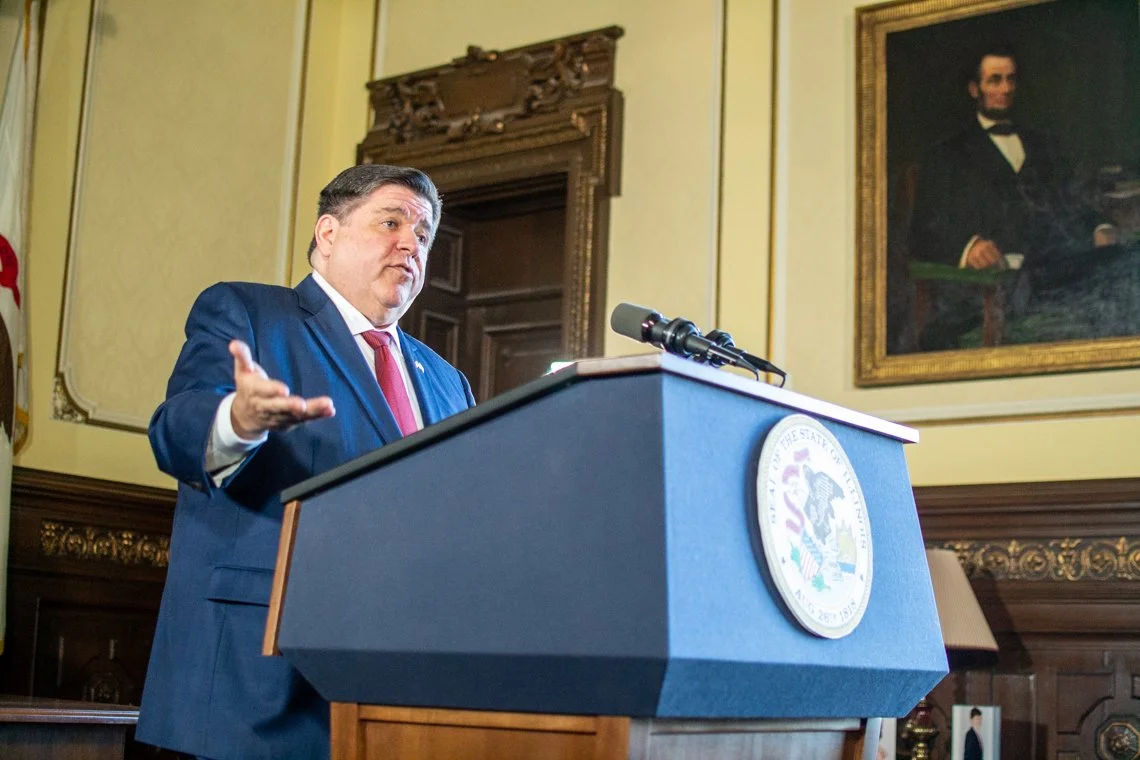No other state requires an age-based driving test for license renewal
By ASHLEY SORIANO
For Capitol News Illinois
and Medill Illinois News Bureau
AshleySoriano2025@u.northwestern.edu
CHICAGO – Older drivers in Illinois could face fewer barriers to renew their driver’s licenses next year as part of a bill that would raise the age for the state-mandated annual driver’s test from 79 to 87.
Secretary of State Alexi Giannoulias announced support for House Bill 1226 this week, joined by lawmakers from both parties. The measure, dubbed the Road Safety and Fairness Act, would impact roughly 350,000 Illinoisans, according to Giannoulias.
Illinois is the only state that requires a driving test for seniors based on age. Currently, people 79 and above are required to take a road test to renew their license. The proposed bill comes after years of efforts by some lawmakers and advocates to raise the “behind-the-wheel” driving test age and to establish procedures to report unsafe drivers.
“Age alone does not necessarily determine if someone should or should not have a driver’s license,” said Giannoulias, whose office oversees driver’s license issuance and vehicle registration, at a news conference Tuesday. “A birthday is not an accurate gauge of one’s ability to get behind the wheel safely.”
Older drivers tend to have lower crash rates, according to state data. In 2023, the crash rate for drivers aged 75 and above was 24.61 per 1,000 drivers, which was lower than any other age group, according to the Illinois Department of Transportation. The low crash rate has been consistent since at least 2018, according to the Secretary of State’s Office’s 2023 Study on Age-Related Driving Abilities.
The crash rate is more than double for many of the other age groups.
“I think about my mom. I don’t think my mom would admit she’s a senior, but she is someone that is very much a safe driver,” said state Sen. Ram Villivalam, D-Chicago. “I can’t think of someone that I know that’s a safer driver. … This legislation is removing this archaic requirement and doing so in a very balanced way.”
Villivalam, chair of the Illinois Senate Transportation Committee, said the road test is the No. 1 issue seniors reach out to his office about in his district, which includes Chicago.
“They do not appreciate being discriminated against in this way. They do want this barrier removed,” he said.
Before the pandemic, the road test for senior drivers applied to people over the age of 75 but a temporary measure raised the age to 79. This became permanent last year after a study from the secretary of state’s office found the number of crashes did not increase significantly in each age range.
Co-sponsor State Rep. Jeff Keicher, R-Sycamore, referred to the legislation as “the art of the possible,” despite some pushback from some other legislators.
The Road Safety and Fairness Act would also allow relatives to report unsafe drivers.
Illinois is one of only five states that do not allow immediate family members to report concerns about a relative’s driving ability, but the new legislation, in partnership with AARP Illinois, would change that.
“Illinois AARP members have asked our team for years, ‘Why is Illinois the only state in the nation to use age as a factor to require people to retake their driving test?’” Philippe Largent, AARP Illinois state director, said. “It’s time for Illinois to join the 49 other states and take a step forward in increasing the age in which older drivers in the state are required to take a driving test.”
The proposed legislation would eliminate the driving test for some, but it would still require renewals at a DMV location every one to four years, depending on age.
Every four years, 79- and 80-year-olds will still need to renew their licenses in person, while drivers between 81 and 86 years of age will need to renew every two years in person. Those 87 and above will renew annually in person, and a vision test is required for all age groups.
The bill moves Illinois closer to being consistent with other states’ driving requirements, although it remains one of the strictest states when it comes to license renewal for older drivers.
Wisconsin requires drivers of all ages to renew their licenses every eight years without a driving test. Indiana once mandated a road test for seniors but repealed it in 2005. New Hampshire was the last state besides Illinois to do away with their age-based road test in 2011.
“I would look at this as where we’re able to get the ball right now,” Keicher said. “It doesn’t mean the battle ends, but it does mean this is where we’re able to get from the feedback that we had during the spring session (last year).”
The Road Safety and Fairness Act will be considered in the upcoming spring General Assembly session. If passed and signed by the governor, the changes would take effect July 1, 2026.
Ashley Soriano is a graduate student in journalism with Northwestern University’s Medill School of Journalism, Media, Integrated Marketing Communications, and a Fellow in its Medill Illinois News Bureau working in partnership with Capitol News Illinois.
Capitol News Illinois is a nonprofit, nonpartisan news service that distributes state government coverage to hundreds of news outlets statewide. It is funded primarily by the Illinois Press Foundation and the Robert R. McCormick Foundation.









